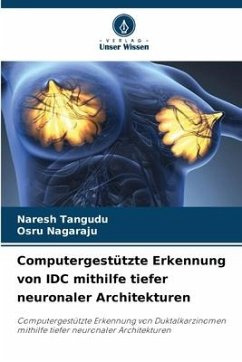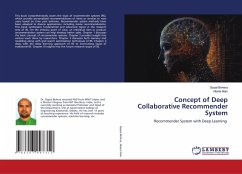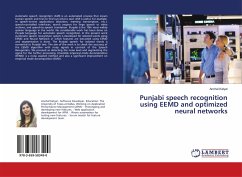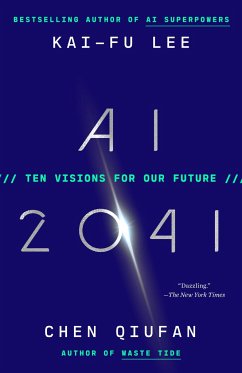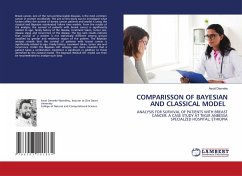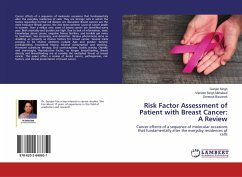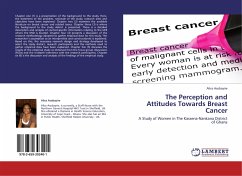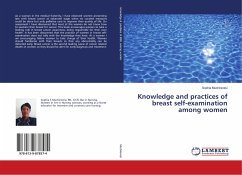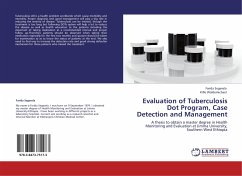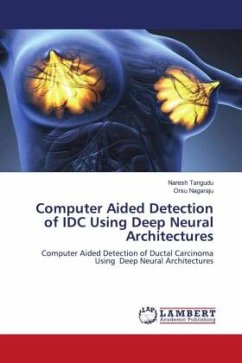
Computer Aided Detection of IDC Using Deep Neural Architectures
Computer Aided Detection of Ductal Carcinoma Using Deep Neural Architectures
Versandkostenfrei!
Versandfertig in 6-10 Tagen
40,99 €
inkl. MwSt.

PAYBACK Punkte
20 °P sammeln!
Breast cancer is the most frequent kind of cancer among females. Survival rates and prognoses for breast cancer vary greatly based on the stage at which it is detected. As a result, treatment is more effective if it is diagnosed early. Invasive ductal carcinoma(IDC) tissue areas in whole slide images (WSI) of breast cancer: an approach for automated diagnosis and visual analysis (BCa). Deep learning methods involve computational models of the learning process and are learn-from-data methods. This method is analogous to how the human brain works, in which the most representative and valuable tr...
Breast cancer is the most frequent kind of cancer among females. Survival rates and prognoses for breast cancer vary greatly based on the stage at which it is detected. As a result, treatment is more effective if it is diagnosed early. Invasive ductal carcinoma(IDC) tissue areas in whole slide images (WSI) of breast cancer: an approach for automated diagnosis and visual analysis (BCa). Deep learning methods involve computational models of the learning process and are learn-from-data methods. This method is analogous to how the human brain works, in which the most representative and valuable traits are interpreted at different levels or layers, resulting in a hierarchical learnt representation. In various domains, including as speech understanding and object identification, these methods have been demonstrated to outperform traditional approaches to the most difficult issues. The procedure proposed in this thesis may open up a new direction in achieving a breast cancer prediction technique. Fundamentally, two types of ductal carcinoma are found in women and tumor of the ductal carcinoma. Cancer of the internal organs is also known as DCIS or Intra ductal Carcinoma.



